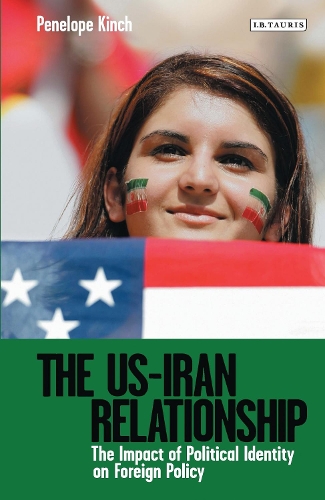
The US-Iran Relationship: The Impact of Political Identity on Foreign Policy
Publishing Details
The US-Iran Relationship: The Impact of Political Identity on Foreign Policy
By (Author) Penelope Kinch
Bloomsbury Publishing PLC
I.B. Tauris
1st August 2016
United Kingdom
Classifications
Tertiary Education
Non Fiction
327.55073
Physical Properties
288
Width 138mm, Height 216mm, Spine 25mm
493g
Description
Since the Revolution of 1978/79, which eventually brought to power Ayatollah Khomeini and his circle of conservative, though politically active, clerics, the relationship between Iran and the USA has represented one of the world's most complex and hostile international entanglements. In this book, Penelope Kinch analyses the extent to which political identity has contributed to challenges in the relationship and the role of myths in foreign policy. Kinch first examines the construction of political identity in each country, and thereby traces the imagined norms which have their impact on international behaviour. Looking at the misperceptions that have precluded closer communication between the two states, Kinch examines both historical issues, such as the 1979 US embassy hostage crisis as well as more contemporary crises, most notably over Iran's nuclear power programme.
Reviews
'Since the 1979 Iranian Revolution few international relationships are more fraught with obstacles to mutual understanding than the Iranian-American one. While, Penelope Kinch frames her analysis within constructivism, she solidly grounds political science theory in history, including the use of new oral and archival sources. Consequently, her important analysis, clearly expressed, invites a broad readership.' - Gene R. Garthwaite, Professor Emeritus of History, Dartmouth College, 'The literature on foreign policy analysis of Iran and the United States, and within that detailed scrutiny of IRI-USA relations has been a major field of research since before the 1979 revolution. But US interventions in the region since 9/11 has added a new urgency to analysis of US-Iran relations in a much less predictable regional environment. Indeed, given the positive developments on the nuclear front, and the commensurate negative ones following the deepening regional crises which impact the interests of both Iran and the United States, interest in the conduct of these two major MENA regional actors will remain high. To understand their behaviour and their policies going forward one needs a strong analytical rudder, one which can explain the drivers of these states' policies as well as their motives, and I think we have that in Kinch's new innovative study of US-Iran relations through the lens of the interaction between identity and policy.' - Anoush Ehteshami, Nasser al-Sabah Professor of International Relations, Durham University
Author Bio
Penelope Kinch holds a PhD in International Relations from the Centre for Arab and Islamic Studies at the Australian National University. She is currently working as a risk management advisor for an international NGO.
